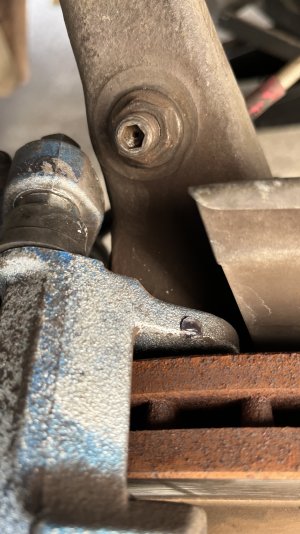I installed the PBR calipers about 4 years ago. I had some grinding noise and pulled the wheels, the passenger side inside pad was gone, all 3 other pads had ~1\4” of pad left.
Any input why that pad wore out so much faster?
Any input why that pad wore out so much faster?

